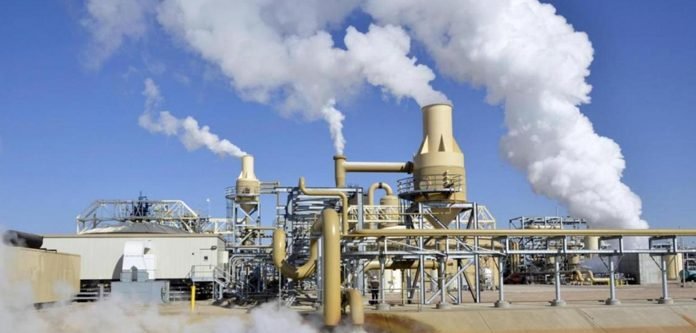The government of Kenya has dropped Independent Power Producers as private project partners in geothermal power production for KenGen.
Energy Cabinet Secretary Charles Keter revealed the report and said that the government will work with the state-owned power producer in the second and third phases of the 465MW geothermal power production at Menengai Geothermal fields.
The initial phase of the project involves generation of 105MW of geothermal power while the second and third phases are expected to add 60MW and 300MW of renewable energy to the national grid, respectively.
“When it comes to phase two of geothermal production at Menengai we will have to do with KenGen the way we did with the Olkaria (280MW). These IPPs are very slow. If it were KenGen we would have finished a long time ago. KenGen will come in because they are the ones who know how to run the power plants and this is a model we want to pursue,” Mr Keter.
Read:Drilling tender ongoing for Corbetti Geothermal project
Policy shift
The policy shift comes after the African Development Bank (AfDB) released an assessment report on the status of the Menengai Geothermal Development power project showing that three IPPs; Orpower 22 Ltd, Quantum Power East Africa, and Sosian Energy have delayed the production of cheaper energy by more than two years.
According to Cs Keter, KenGen will get another equity investor for the projects. The new investor will strengthen KenGen’s balance sheet in order to have sufficient funds for investments without relying heavily on borrowing. They are is using steam like that at Olkaria to get investors in the geothermal power production.
The state owned power producer could cede up to 70% of its shareholding in geothermal projects to strategic investors while it retains 30% with a view of growing the company’s balance sheet and ensuring that its investments in clean energy projects are sustainable.
“When a new investor comes in with funds for geothermal projects, KenGen’s percentage of equity can be 30% percent while the new investor takes up 70% and this will grow KenGen’s balance sheet. That is the model that we want to use going forward,” said Mr Keter.
The delay in the commercial operations of the power plants by IPPs has impacted the government in terms of replacing expensive diesel-generated power that continues to cost the economy and hinder the competitiveness of the industrial sector. The long- term financial sustainability of the Menengai Geothermal Power project is dependent on the physical completion and operation of the power plants to off take steam from the Geothermal Development Company.





[…] Link to article […]
[…] Full Article at pumps-africa.com […]
[…] Read:Kenya drops IPPs for KenGen to generate geothermal power […]